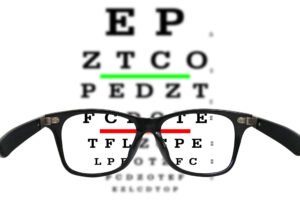How to restore 20/20 vision? Everything you need to know about it
Unfortunately, if you have weak eyes and your vision is not clear for years, you have probably heard about 20/20 vision. So, How to restore 20/20 vision? You asked.
How to Obtain Perfect 20/20 Eyesight Optimal eyesight is dependent on good eye health. Even though you can’t always choose how well you see, taking good care of your eyes is critical to maintaining good vision and eye health.
Table of Contents
How to restore 20/20 vision? Everything you need to know about it
What 20/20 Vision Means
If you can see as well as the typical person when tested using an eye chart 20 feet away, you may have 20/20 vision.
Many individuals seek this degree of “perfect” or “near-perfect” eyesight. Having 20/20 vision, on the other hand, does not necessarily imply that your eyesight is perfect. It shows how well pictures can be seen from 20 feet.
Read More: 5 most common symptoms of eye disorders and diseases
Take a look at this: At 20 feet away, a person with 20/10 vision sees more clearly than someone just 10 feet away. To put it another way, you have a higher level of visual acuity.
The American Optometric Association (AOA) asserts that the clarity of your eyesight is not only dependent on your distance vision. In addition, you must have good eye coordination, peripheral vision, and the capacity to focus on pictures.
How to restore 20/20 vision?
If you want to discover how to attain 20/20 vision, keep in mind that you may not be able to train your eyes to reach this degree of imagination.

Eye illnesses, genetics, and lifestyle choices all have a role in your ability to see well.
Taking actions to enhance your eye health, on the other hand, may benefit your eyesight. To get started, here are some ideas:
#1: Wear your contact lenses or eyeglasses as prescribed.
Your eye doctor may recommend corrective lenses if you have a refractive defect or other visual problem. Please follow the manufacturer’s instructions and put them on as directed.
When it comes to specific activities or all day long, keep to the timetable prescribed by your eye doctor to alleviate any pain caused by looking at items that are either too near or far away.
Read More: What are the most common eye diseases in humans?
Remember that For Eyes has an extensive assortment, from everyday wear to long-lasting toric lenses. We also provide a wide selection of designer frames and lenses. Consult with your optometrist about the best types of eyeglasses for your needs.
#2: Consume a healthy, balanced diet full of antioxidants.
If left untreated, several eye illnesses, such as AMD and cataracts, may cause vision loss and blindness. AMD and cataracts may be less common in those who consume an antioxidant-rich diet, but further study is needed to confirm this.
Begin with the following anti-oxidants:
- Omega-3 fatty acids with Vitamin C
- Zinc and Vitamin E
#3: Schedule an annual eye exam.
Regular eye examinations for both adults and children cannot be overstated. Why? In addition to evaluating your vision, an eye doctor may look for signs of eye illness and other health issues, such as diabetes and high blood pressure, during an examination.
Ask your optometrist how to enhance your eyesight during your eye checkup. They may provide vital information on eye-friendly tactics and technologies.
